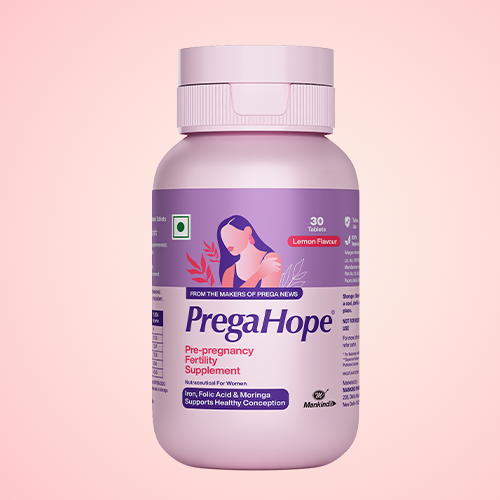Complete Diet Plan for Breastfeeding Mothers: Foods to Eat & Avoid
Breastfeeding is one of the most important phases after childbirth, not just for the baby’s growth, but also for the mother’s health and recovery. During lactation, a woman’s body produces milk that becomes the primary source of nutrition for her infant. To sustain this process, the mother’s nutritional requirements significantly increase. A well-balanced diet for breastfeeding mothers ensures that both mother and baby receive all essential nutrients for immunity, energy, and development.
However, many new mothers are confused about what to eat, how much to eat, and which foods to avoid while breastfeeding. While traditional advice varies, scientific recommendations emphasise balance, variety, and nutrient density. A well-designed breastfeeding diet plan should focus on providing adequate calories, protein, vitamins, and minerals to replenish the mother’s body while maintaining optimal milk production.
To help further, here is a list of foods to include and avoid, and the key nutrients that form the foundation of a healthy breastfeeding mom’s diet.
Importance of a Good Diet for Lactating Mothers
A good diet for lactating mothers directly affects both the quality and quantity of breast milk. Although the body prioritises milk production, poor nutrition can gradually deplete the mother’s nutrient stores, leading to fatigue, low energy levels, and even reduced milk output.
Breast milk contains essential fats, proteins, carbohydrates, vitamins, and minerals needed for an infant’s early growth and brain development. To produce nutrient-rich milk, the mother must consume a balanced diet that covers all food groups.
A nourishing breastfeeding mom diet supports postpartum recovery, helping replenish iron lost during delivery, maintain bone health, and stabilise hormones. It also plays a role in mood regulation, as deficiencies in key vitamins like B12 and D are linked to fatigue and mood swings.
A healthy breastfeeding diet isn’t about eating excessively but rather about eating smart, including the right foods, in the right amounts, to sustain both mother and baby effectively.
Also Read – Pregnancy Diet
Diet for Breastfeeding Mothers Must Include

Here’s what a wholesome diet for breastfeeding mothers should include for optimal nourishment:
1. Whole Grains
Foods like oats, brown rice, and whole wheat provide complex carbohydrates that offer sustained energy and aid digestion. They are also rich in B vitamins and fibre, which support metabolism and regulate bowel movement, something many new mothers struggle with postpartum. Including a serving of whole grains in every meal helps keep energy levels stable throughout the day.
2. Lean Proteins
Protein supports milk production and helps rebuild tissues post-delivery. Include sources like lentils, eggs, chicken, fish, paneer, tofu, and dairy products. Protein also helps mothers feel full longer and supports muscle strength, especially if they’re gradually returning to physical activity. A daily intake of around 65–75 grams of protein is ideal for lactating women.
3. Fresh Fruits and Vegetables
Fruits and vegetables are loaded with vitamins, minerals, antioxidants, and hydration, making them crucial in a breastfeeding mom’s diet. Citrus fruits supply vitamin C for immunity, while leafy greens provide calcium and iron. Aim for at least five portions daily, mixing raw and cooked varieties to retain different nutrients.
4. Healthy Fats
Good fats, such as omega-3 fatty acids from fish, walnuts, flaxseeds, and chia seeds, are vital for the baby’s brain and eye development. These fats also help maintain the mother’s hormone balance. Avoid trans fats and fried foods, and focus on natural fat sources like avocados, nuts, and olive oil.
5. Calcium-Rich Foods
Calcium supports bone strength for both the mother and baby. Milk, curd, cheese, sesame seeds, and fortified plant-based milks are excellent options. Breastfeeding increases calcium requirements, so including at least two servings daily can prevent deficiencies.
6. Iron-Rich Foods
Iron is essential for recovering from childbirth and preventing postpartum anaemia. Include spinach, lentils, beans, meat, and jaggery in the diet for lactating mothers. Pair iron-rich foods with vitamin C sources to enhance absorption.
7. Hydration and Fluids
Breast milk production depends heavily on hydration. Water, coconut water, buttermilk, and soups are great fluid choices. Mothers should aim to drink at least 10–12 glasses of water daily. Dehydration can affect both milk flow and overall energy.
8. Galactagogues (Milk-Boosting Foods)
Certain foods, like fenugreek seeds, fennel, garlic, and cumin, are known to promote milk production. While scientific evidence varies, they are widely used and safe in moderate amounts. These ingredients can easily be added to daily meals to support lactation naturally.
Also Read – Eating Well While Pregnant
What Vitals and Nutrients Should a Breastfeeding Diet Plan Include?
A strong breastfeeding diet plan focuses on replenishing key nutrients lost during pregnancy and childbirth. Here’s what’s most important:
- Protein: Supports tissue repair and milk production. Found in dairy, eggs, legumes, lean meats, and soy.
- Calcium: Strengthens bones and teeth for both mother and child. Found in milk, curd, ragi, sesame seeds, and green vegetables.
- Iron: Prevents postpartum anaemia and fatigue. Found in leafy greens, beans, jaggery, and meat.
- Omega-3 Fatty Acids: Promote brain and visual development of the baby. Found in fish, walnuts, and flaxseeds.
- Vitamin D: Enhances calcium absorption and bone health. Sunlight exposure and fortified foods are key sources.
- Vitamin B Complex: Supports metabolism and nervous system health. Found in whole grains, eggs, and nuts.
- Zinc and Magnesium: Improve immunity and hormone balance. Found in seeds, legumes, and dark chocolate.
Foods to Avoid While Breastfeeding
A diet for lactating mothers should not only include nourishing foods but also limit items that can interfere with milk quality, digestion, or the baby’s comfort. Here are key foods to avoid or limit:
1. Caffeine
Excess caffeine can pass into breast milk and affect the baby’s sleep or irritability. It’s best to limit coffee, tea, cola, and energy drinks to no more than one small cup per day.
2. Alcohol
Alcohol can enter breast milk and impact the baby’s development. It’s safest to avoid alcohol entirely during breastfeeding. If consumed, allow at least 2–3 hours before feeding.
3. Highly Processed Foods
Packaged snacks, fried foods, and fast food contain unhealthy fats, sugar, and preservatives that provide little nutrition and can cause bloating or fatigue. Choose fresh, homemade alternatives whenever possible.
4. Certain Fish High in Mercury
While fish is a great source of omega-3s, varieties like swordfish, king mackerel, and shark contain high mercury levels, which can harm the baby’s developing brain. Opt for low-mercury fish like salmon or sardines instead.
5. Gas-Forming Foods
Some babies may react to foods that cause gas or colic, such as cabbage, broccoli, onions, or beans. If your baby becomes unusually fussy after you eat certain foods, try eliminating them to see if symptoms improve.
6. Spicy and Strongly Flavoured Foods
While not harmful, strong spices or garlic may alter breast milk’s taste and sometimes cause the baby to reject the feed. Observe how your baby responds and adjust intake accordingly.
7. Artificial Sweeteners and Sugary Drinks
Avoid excessive sugar and artificial sweeteners found in diet sodas and processed desserts. They can disrupt energy levels and provide no real nutritional value.
8. Herbal Supplements Without Medical Advice
Not all herbs are safe during breastfeeding. Certain herbal teas or supplements may interfere with milk production or medication. Always consult a healthcare professional before using them.
Breastfeeding and Mothers’ Diet: Why It Matters
A thoughtful approach to breastfeeding and the mother’s diet helps create the foundation for both short-term recovery and long-term health. The right nutrition supports milk production, boosts immunity, and helps mothers regain strength after delivery. It also influences the baby’s growth, immunity, and digestive comfort during the first six months, when breast milk is the sole source of nutrition.
Following a balanced breastfeeding diet plan ensures that every meal contributes to healing and nourishment. Rather than focusing on restrictions, mothers should emphasise variety, colour, and freshness on their plates. This approach not only sustains energy but also strengthens the mother-child bond through healthy nourishment.
Frequently Asked Questions – Complete Diet Plan
Q. How many extra calories should a breastfeeding mother consume daily?
On average, a breastfeeding mother needs an additional 400–500 calories per day to support milk production and maintain energy levels.
Q. Can a vegetarian mother maintain an adequate breastfeeding diet?
Yes, a vegetarian breastfeeding mom’s diet can meet all nutritional needs if it includes dairy, pulses, legumes, nuts, seeds, and fortified foods for vitamin B12 and D.
Q. How much water should a lactating mother drink daily?
Hydration is key. Aim for at least 3 litres of fluids daily, including water, soups, and natural beverages like coconut water or buttermilk.
Q. Are supplements necessary for breastfeeding mothers?
In some cases, doctors may recommend supplements like iron, calcium, or vitamin D to cover specific deficiencies. Always consult a healthcare provider before taking any supplements.













































Leave a comment